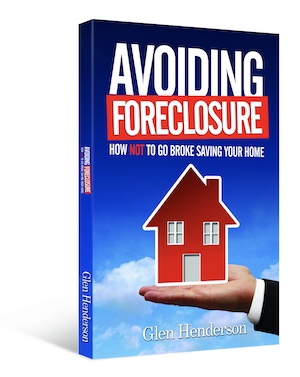What Happens if I Foreclose After a Loan Modification?
It’s terrible, but it happens. Just when you think you’re in the clear and safe from foreclosure because of a loan modification, you find that you are now unable to meet the terms and conditions of a loan modification. Loan modification can prevent foreclosure, but it doesn’t always work out that way. If you end up having to foreclose after loan modification, here’s what to expect:
Types of Loan Modifications
There are basically two broad types of loan modifications: temporary and permanent. Temporary loan modifications temporarily lower the amount of your payments to help you get through a financial rough patch. They are ideal for people who are going through some tough financial times but expect to be able to meet the full terms of their mortgage after their finances recover.
Permanent loan modifications permanently lower the amount of the monthly payments to help someone deal with a financial hardship that is expected to last longer than just a few months. Loan modifications of this type last for the duration of the mortgage.
Both temporary and permanent loan modifications leave you at risk of foreclosure. If you are unable to meet the newly modified terms of the loan, you will still face the same foreclosure process as anyone else. In this case, you’ll probably face the prospect of foreclosure with less options in front of you.
Foreclosure Is About the Same
The bottom line is this: loan modifications are meant to prevent foreclosure in the first place. If you go through a loan modification and then come to the point of foreclosure, the process is going to be nearly identical to the process of going through foreclosure if there was no loan modification. In fact, once you’ve picked up a loan modification, your credit score drops and it will be really tough to get a second loan modification. This means that foreclosure after a loan modification can leave you with even less options than before.
Your Credit Score Gets Worse
Foreclosure is about one of the worst things that can happen to your credit score. But it could actually be worse in a scenario where you’ve experienced a loan modification, because you’re starting from an even worse credit score when you go through foreclosure. It’s not going to be significant enough to change your decision about modifications and foreclosures, but it’s something to be aware of.
It’s Tough to Get a Second Loan Modification
If you’ve already been approved for a loan modification and are now struggling to make payments on that modified loan, you can always talk to your lender. In extremely rare circumstances, you might be able to get another loan modification. It’s not likely, but it’s certainly worth a shot.
The Foreclosure Process Will Be More Abrupt
Lenders are more likely to move quickly if you default on a loan that has already been through modification. All of the timelines for your state’s foreclosure process will still apply, but you can probably expect the lender to move through the process as quick as possible. Some banks will give a 3-6 month buffer period between a missed payment and the beginning of the foreclosure process, possibly even longer. But after you’ve modified a loan, this buffer period is probably going to be abbreviated.
What to Do if You’re Facing Foreclosure After a Loan Modification
Short Sale
Keep in mind that after you’ve gone through the loan modification process, the foreclosure process will generally snap shut much more quickly than a loan that hasn’t been modified yet. Which means if you’re going to try to recover you funds through a short sale, you probably have less time than you would for a loan that wasn’t modified.
Deed in Lieu
Deed in lieu will be accepted by some lenders as an alternative to a short sale. You basically hand the deed of the house back to the bank instead of going through the foreclosure process, and they agree to forgive the outstanding balance on the loan.
Bankruptcy
When you’ve modified your loan, you have not given up your ability to file for bankruptcy. While bankruptcy is obviously really bad for your credit score, it can be a way of saving your house amidst the loan modification. If a loan modification wasn’t enough, bankruptcy can actually freeze the foreclosure process. By releasing you from any unsecured debts, you can also free up additional capital that can help you handle your mortgage payments. And since you’ve already qualified for loan modification, hopefully your payments are generally lower.




